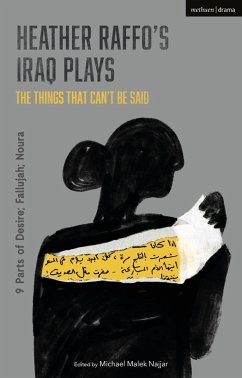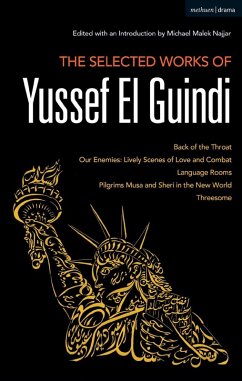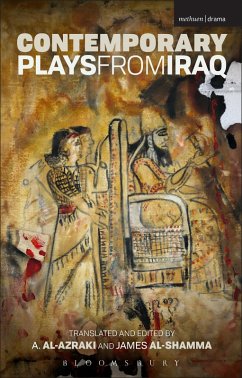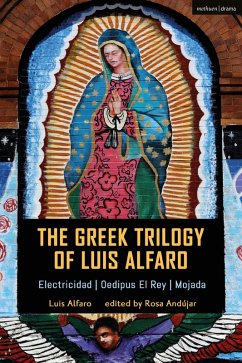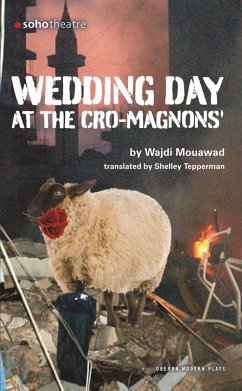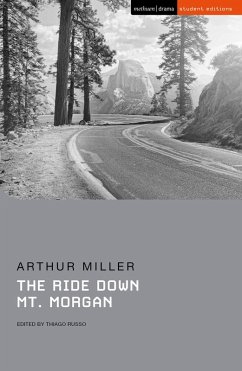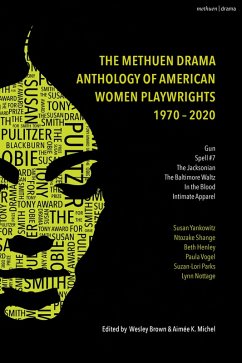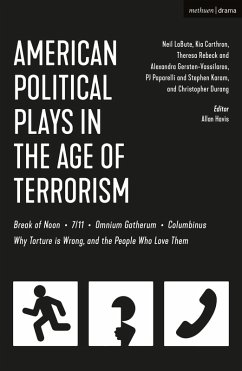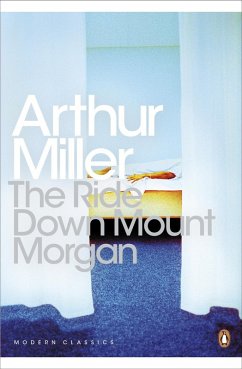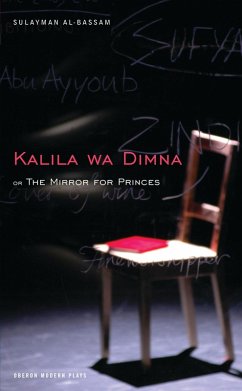
Heather Raffo's Iraq Plays: The Things That Can't Be Said (eBook, ePUB)
9 Parts of Desire; Fallujah; Noura
Redaktion: Najjar, Michael Malek
Versandkostenfrei!
Sofort per Download lieferbar
21,95 €
inkl. MwSt.
Weitere Ausgaben:

PAYBACK Punkte
11 °P sammeln!
The Things That Can't Be Said: Three Plays About Iraq is a trilogy of plays by renowned Iraqi American playwright/performer Heather Raffo including 9 Parts of Desire, Fallujah: The First Opera about the Iraq War, and Noura. In these three works Raffo explores the indelible effects of war on Iraqis, Americans, and the refugees caught between the two cultures. When considered together, these three works give voice to nearly two decades of rarely examined traumas that have reshaped cultural and national identity for both Americans and Iraqis since the events of 9/11. Heather Raffo is a renowned p...
The Things That Can't Be Said: Three Plays About Iraq is a trilogy of plays by renowned Iraqi American playwright/performer Heather Raffo including 9 Parts of Desire, Fallujah: The First Opera about the Iraq War, and Noura. In these three works Raffo explores the indelible effects of war on Iraqis, Americans, and the refugees caught between the two cultures. When considered together, these three works give voice to nearly two decades of rarely examined traumas that have reshaped cultural and national identity for both Americans and Iraqis since the events of 9/11. Heather Raffo is a renowned playwright and performer whose work has been described by The New Yorker as an example of "how art can remake the world." An American with Iraqi heritage, her work is seen as a rare bridge between western and eastern cultures. With ongoing debates about the legacy of America's foreign wars and future role in the Middle East, this volume offers a uniquely historical and deeply human perspective on the political issues of our time. Spanning a decade and a half, together these works form a mosaic of untold stories that were ground breaking in their time and continue to profoundly impact communities and classrooms internationally. 9 Parts of Desire (2003): "First Choice/The Best Shows in London" by The Times, and as one of the "Five Best Plays" in London by The Independent. Its award winning, Off-Broadway premiere ran for nine sold out months and was a critics pick of the The New York Times, Time Out, and Village Voice. The play then received productions in nearly every major regional theatre market in American before being translated for international productions in Brazil, Greece, Sweden, Hungary, India, Turkey, Malta, France, Iraq, Egypt, and Israel. It was the first commercial hit on a national and international stage by an Arab American playwright helping to birth a new genre of Middle Eastern American Theatre. Fallujah (2016) received its world premiere at Long Beach Opera before transferring to NYC Opera. The first ever opera about the Iraq War it tells a U.S. Marine's account of the battle of Fallujah it focuses on moral injury and veteran suicide. Noura (2018) won the L. Arnold Weissberger New Play Award and was hailed "The Most Ambitious Premiere" of the Women's Voices Theatre Festival by The Washington Post and "stirringly powerful" by The New York Times. Told from inside the marriage of an Iraqi family, the play explores the lingering cost of exile for both recent refugees and more established American immigrants. Drawing inspiration from Ibsen's A Doll's Hous and championed as a first of its kind feminist refugee narrative, it is already being included in university curriculum both in America and abroad.




